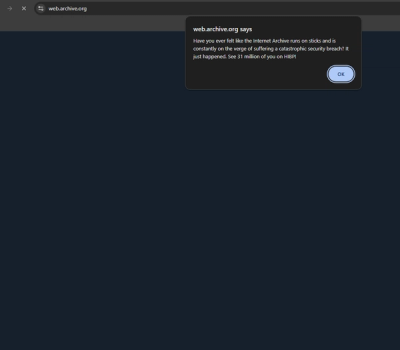
Schema validation with static type inference

flowchart TD
Schema -->|codecFor| Codec
Schema -->|guardFor| Guard
Schema -->|arbitraryFor| Arbitrary
Schema -->|prettyFor| Pretty
Features
- deriving single artifacts from a
Schema:
Codec (all in one artifact)- custom artifact compilers
- custom
Schema combinators - custom data types
- custom decode errors (TODO)
- refinements (TODO)
- versioning (TODO)
- migration (TODO)
Introduction
Welcome to the documentation for @fp-ts/schema, a library for defining and using schemas to validate and transform data in TypeScript. @fp-ts/schema allows you to define a Schema that describes the structure and data types of a piece of data, and then use that Schema to perform various operations such as decoding from unknown, encoding to unknown, parsing from JSON strings, and stringifying to JSON strings. @fp-ts/schema also provides a number of other features, including the ability to derive various artifacts such as Codecs, Guards, and Arbitrarys from a Schema, as well as the ability to customize the library through the use of custom artifact compilers and custom Schema combinators.
Getting started
To get started with @fp-ts/schema, you will need to install the library using npm or yarn:
npm install @fp-ts/schema
yarn add @fp-ts/schema
Once you have installed the library, you can import the necessary types and functions from the @fp-ts/schema/Codec module.
import * as C from "@fp-ts/schema/Codec";
Defining a schema
To define a Schema, you can use the provided struct function to define a new Schema that describes an object with a fixed set of properties. Each property of the object is described by a Schema, which specifies the data type and validation rules for that property.
For example, consider the following Schema that describes a person object with a name property of type string and an age property of type number:
const Person = C.struct({
name: C.string,
age: C.number,
});
You can also use the union function to define a Schema that describes a value that can be one of a fixed set of types. For example, the following Schema describes a value that can be either a string or a number:
const StringOrNumber = C.union(C.string, C.number);
In addition to the provided struct and union functions, @fp-ts/schema also provides a number of other functions for defining Schemas, including functions for defining arrays, tuples, and dictionaries.
Once you have defined a Schema, you can use the Infer type to extract the inferred type of the data described by the Schema. For example, given the Person Schema defined above, you can extract the inferred type of a Person object as follows:
type Person = C.Infer<typeof Person>;
Decoding from unknown
To use the Person Schema defined above to decode a value from unknown, you can use the decode function:
import * as DE from "@fp-ts/schema/DecodeError";
const unknown: unknown = { name: "name", age: 18 };
expect(Person.decode(unknown)).toEqual(C.success({ name: "name", age: 18 }));
expect(Person.decode(null)).toEqual(
C.failure(DE.notType("{ readonly [_: string]: unknown }", null))
);
The decode function returns a Validated<DecodeError, A> which is a type alias for These<NonEmptyReadonlyArray<DecodeError>, A>, where DecodeError is a type that represents a list of decode errors and A is the inferred type of the Schema. If the result is a Right or a Both value, it means that the decode was successful and the value inside the Right is the decoded value. If the result is a Left value, it means that the decode failed and the value inside the Left is a list of decode errors.
Parsing from JSON strings
To use the Person Schema defined above to parse a JSON string, you can use the parse function:
expect(() => Person.parseOrThrow("malformed")).toThrow(
new Error("Cannot parse JSON from: malformed")
);
expect(() => Person.parseOrThrow("{}")).toThrow(
new Error("Cannot decode JSON")
);
expect(() =>
Person.parseOrThrow("{}", (errors) => JSON.stringify(errors))
).toThrow(
new Error(
`Cannot decode JSON, errors: [{"_tag":"Key","key":"name","errors":[{"_tag":"Missing"}]}]`
)
);
Encoding a value
To use the Person Schema defined above to encode a value to unknown, you can use the encode function:
expect(Person.encode({ name: "name", age: 18 })).toEqual({
name: "name",
age: 18,
});
Stringifying to JSON strings
To use the Person Schema defined above to stringify to a JSON string, you can use the stringify function:
expect(Person.stringify({ name: "name", age: 18 })).toEqual(
'{"name":"name","age":18}'
);
Guard
expect(Person.is({ name: "name", age: 18 })).toEqual(true);
expect(Person.is(null)).toEqual(false);
Pretty print
expect(Person.pretty({ name: "name", age: 18 })).toEqual(
`{ "name": "name", "age": 18 }`
);
fast-check Arbitrary
import * as fc from "fast-check";
console.log(fc.sample(Person.arbitrary(fc), 2));
Custom artifact compilers
src/Pretty.ts, src/Guard.ts and src/Arbitrary.ts are good examples of defining a custom compiler.
Custom schema combinators
Examples in /src/Schema.ts.
All the combinators defined in /src/Schema.ts could be implemented in userland.
Custom data types
Examples in /src/data/*
Understanding Schemas
A schema is a description of a data structure that can be used to generate various artifacts from a single declaration.
From a technical point of view a schema is just a typed wrapper of an AST value
interface Schema<in out A> {
readonly ast: AST;
}
The AST type represents a tiny portion of the TypeScript AST, roughly speaking the part describing ADTs (algebraic data types),
i.e. products (like structs and tuples) and unions.
This means that you can define your own schema constructors / combinators as long as you are able to manipulate the AST type accordingly, let's see an example.
Say we want to define a pair schema constructor, which takes a Schema<A> as input and returns a Schema<readonly [A, A]> as output.
First of all we need to define the signature of pair
import * as S from "@fp-ts/schema/Schema";
declare const pair: <A>(schema: S.Schema<A>) => S.Schema<readonly [A, A]>;
Then we can implement the body using the APIs exported by the AST.ts module
import * as AST from "@fp-ts/schema/AST";
import * as O from "@fp-ts/data/Option";
const pair = <A>(schema: S.Schema<A>): S.Schema<readonly [A, A]> => {
const tuple = AST.tuple(
[AST.element(schema.ast, false, []), AST.element(schema.ast, false, [])],
O.none,
true,
[]
);
return S.make(tuple);
};
The goal of this example was showing the low-level APIs of the AST module, but the same result can
be achieved using the much more handy APIs of the Schema module
const pair = <A>(schema: S.Schema<A>): S.Schema<readonly [A, A]> =>
S.tuple(schema, schema);
Please note that the S.tuple API itself is nothing special and can be defined in userland
export const tuple = <Elements extends ReadonlyArray<Schema<any>>>(
...elements: Elements
): Schema<{ readonly [K in keyof Elements]: Infer<Elements[K]> }> =>
makeSchema(
AST.tuple(
elements.map((c) => c.ast),
O.none,
true
)
);
Now you can compile your pair schemas using the codecFor compiler
import * as C from "@fp-ts/schema/Codec";
const myNumberPair = C.codecFor(pair(S.number));
expect(myNumberPair.is([1, 2])).toEqual(true);
expect(myNumberPair.is([1, "a"])).toEqual(false);
Guard
A Guard is a derivable artifact that is able to refine a value of type unknown to a value of type A.
interface Guard<in out A> extends Schema<A> {
readonly is: (input: unknown) => input is A;
}
Arbitrary
An Arbitrary is a derivable artifact that is able to produce fast-check arbitraries.
interface Arbitrary<in out A> extends Schema<A> {
readonly arbitrary: (fc: typeof FastCheck) => FastCheck.Arbitrary<A>;
}
Pretty
A Pretty is a derivable artifact that is able to pretty print a value of type A.
interface Pretty<in out A> extends Schema<A> {
readonly pretty: (a: A) => string;
}
Codec
A Codec is a derivable artifact that is able to:
- decode a value of type
unknown to a value of type A - encode a value of type
A to a value of type unknown
A Codec is also a Guard, an Arbitrary and a Pretty.
interface Codec<in out A>
extends Schema<A>,
Decoder<unknown, A>,
Encoder<unknown, A>,
Guard<A>,
Arbitrary<A>,
Pretty<A> {}
Basic usage
Primitives
import * as C from "@fp-ts/schema/Codec";
C.void;
C.undefined;
C.string;
C.number;
C.boolean;
C.bigint;
C.symbol;
C.unknown;
C.any;
Filters
Note. Filters don't change the Schema type.
pipe(C.string, C.minLength(1));
pipe(C.string, C.maxLength(10));
pipe(C.number, C.lessThan(0));
pipe(C.number, C.lessThanOrEqualTo(0));
pipe(C.number, C.greaterThan(10));
pipe(C.number, C.greaterThanOrEqualTo(10));
pipe(C.number, C.int);
Literals
C.literal("a");
C.literal("a", "b", "c");
Native enums
enum Fruits {
Apple,
Banana,
}
C.enums(Fruits);
Unions
C.union(C.string, C.number);
Tuples
C.tuple(C.string, C.number);
Append a required element
pipe(C.tuple(C.string, C.number), C.element(C.boolean));
Append an optional element
pipe(C.tuple(C.string, C.number), C.element(C.boolean));
Rest element
pipe(C.tuple(C.string, C.number), C.rest(C.boolean));
Arrays
C.array(C.number);
Non empty arrays
Equivalent to pipe(tuple(item), rest(item))
C.nonEmptyArray(C.number);
Structs
C.struct({ a: C.string, b: C.number });
Optional fields
C.struct({ a: C.string, b: C.number, c: C.optional(C.boolean) });
Pick
pipe(C.struct({ a: C.string, b: C.number }), C.pick("a"));
Omit
pipe(C.struct({ a: C.string, b: C.number }), C.omit("a"));
Partial
C.partial(C.struct({ a: C.string, b: C.number }));
String index signature
C.stringIndexSignature(C.string);
Symbol index signature
C.symbolIndexSignature(C.string);
Extend
pipe(
C.struct({ a: C.string, b: C.string }),
C.extend(C.stringIndexSignature(C.string))
);
Option
C.option(C.number);
Documentation
License
The MIT License (MIT)





